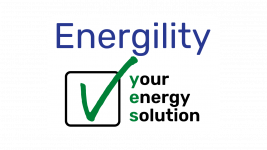Plastic Free July is under way, and I was trying to think of a new thought and idea to write about; however, I am returning to a revelation I had last year in that there are benefits to plastics. As we have moved through the past year and a half, we began to understand that plastics were beneficial to protecting our essential workers with masks and shields for medical professionals to masks and plexiglass protecting the workers at the grocery store. Vaccinations are allowing us to return to interacting with others in a more typical way. Vaccines rely heavily on the plastic industry from syringes to packing supplies. Consequently, instead of trying to force a new idea, I am going to stick with what was written last July (with updated employment statistics).
I need to start this blog off with the fact that this thought and idea has been a struggle for me this month because in the past, July is usually when I make another shift in reducing my use of plastic. I typically view plastic consumption as counter to sustainability. In these unprecedented times, we are finding ourselves in situations we could never have imagined. Yet we remain steadfast in our desire to conserve energy and protect our Earth. We each are finding ourselves doing (or not doing) things we never could have imagined. However, figuring out how to do it may not look like it did last year, but we are still on that path!
We now see the need for PPE (consisting of plastic masks and shields) for healthcare workers and this got me thinking of other ways we benefit from plastic. For many people who are juggling working from home and caring for kids, a takeout dinner (using plastic containers) might be the stress relief they need. The reality is that not everyone can afford a $30 stainless steel water bottle instead of a $1 plastic water bottle or expensive cases of toilet paper without plastic film packaging. If nothing else, this year has really highlighted these issues and maybe it is time to not only see the problems plastic creates but also the benefits it creates.
According to The Plastics Industry Association, the State of Ohio is number two in plastic industry jobs, employing 74,495 people directly. 1.7 million people in Ohio are employed in jobs that are considered plastic dependent, such as healthcare and construction. That is 15% of the Ohio population who has a job that either produces plastic or utilizes plastic in their industry. Again, employment is another positive benefit to a plastics industry.
Plastic manufacturing companies can use an energy audit such as those by Energility to see where their manufacturing plants can conserve energy. This does not just include looking at the machines making the plastic items but also looking at the whole building. An energy audit can help a company produce more with less environmental cost.
Plastics manufacturing not only produces items that are typically cheaper and more readily available, they produce necessary items and employ a great many of Ohioans. It is our personal responsibility to ask that manufacturers reduce their carbon footprint. This can be done by writing to the manufacturers or voting with your dollars by purchasing from companies that are conserving energy or making steps for the betterment of the environment. When manufacturers see that people care enough to purchase from those companies or are directly asking for this change, many will follow suit.
2021 conclusion
After a year and half of living through a global pandemic, it has truly shifted my point of view on plastics. The need to reduce some single use plastics (straws, eating utensils, plastic bags, etc.) is still there but maybe it is time to look at a different way to frame this idea of living plastic free. Plastics have many benefits that it was easy to overlook before but now we know differently. Plastic Free July is simply not practical and leads to a lack of understanding of the benefits of this valuable resource.

Well said. I do believe in reducing many of the plastics in use today, but the transition must be a just one that takes into account the benefits of some plastic in our lives and the ability for all our citizens and businesses to transition to more ecological alternatives. Even with efforts to move away from many uses, many applications for plastic will remain. Policy must be laser focused to ways that reduce the pollution from plastic, both from post-consumer and industry. Incentives can often provide long-term solutions by shifting markets to sustainable options, especially in the consumer packaging where viable alternatives exist. Incentive that create circular ecosystems for industrial products at end of their useful life can be effective. None of this can happen without the political will to make it a priority and make investments.
Great insights. Yes, incentives help move the needle to speed up changes.